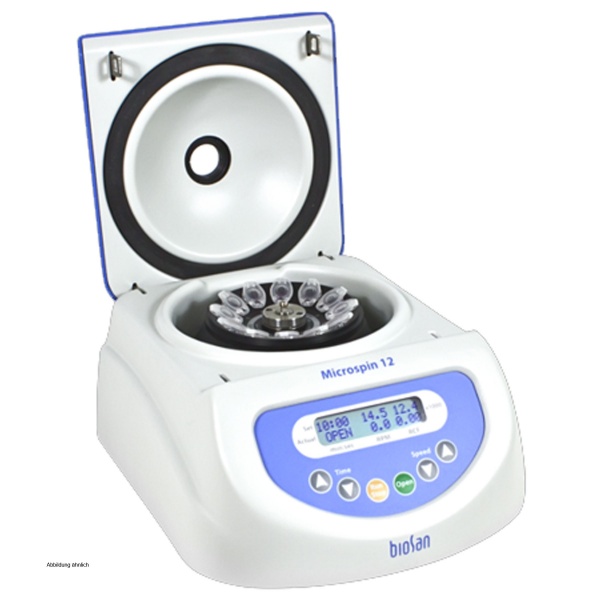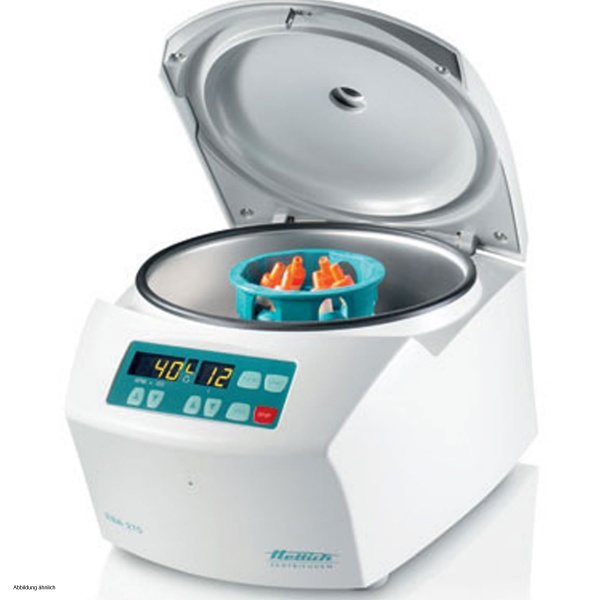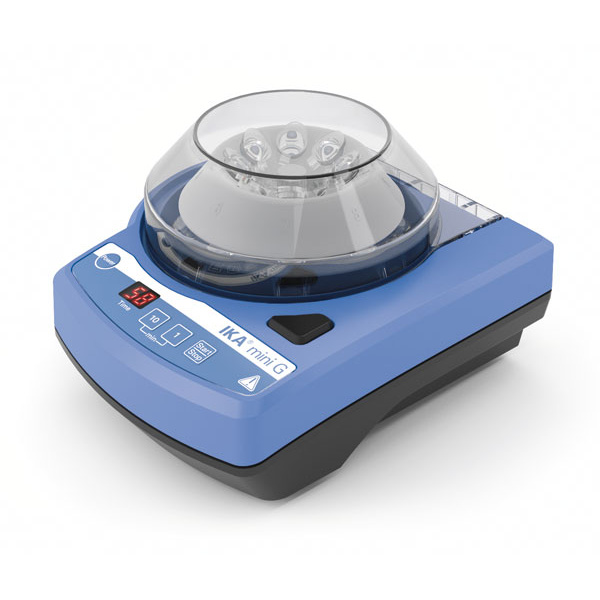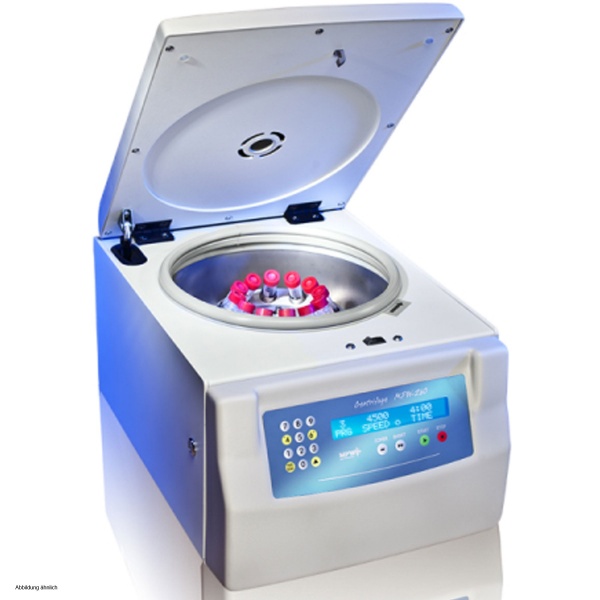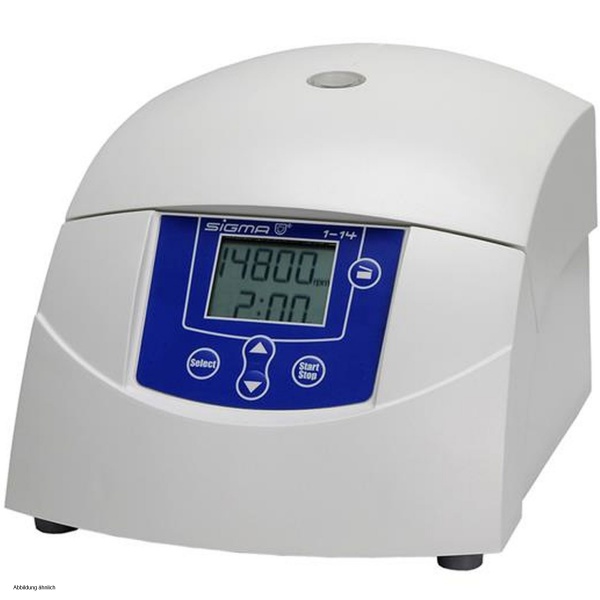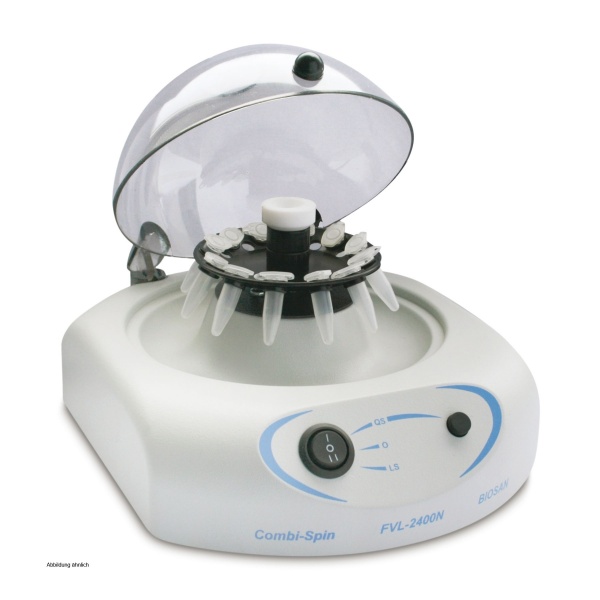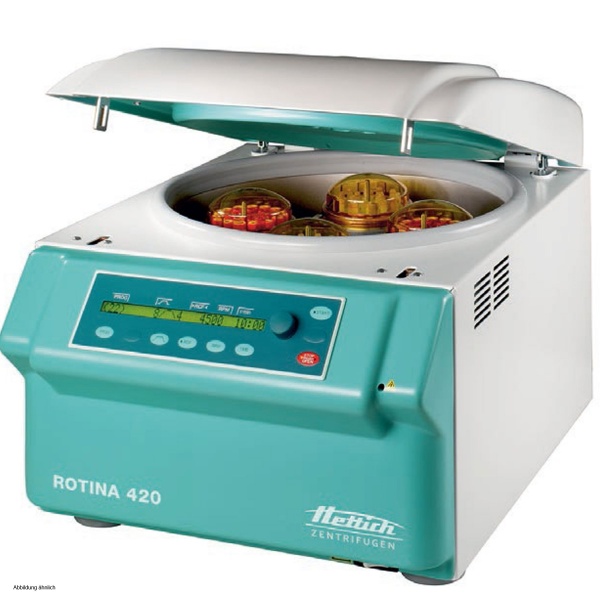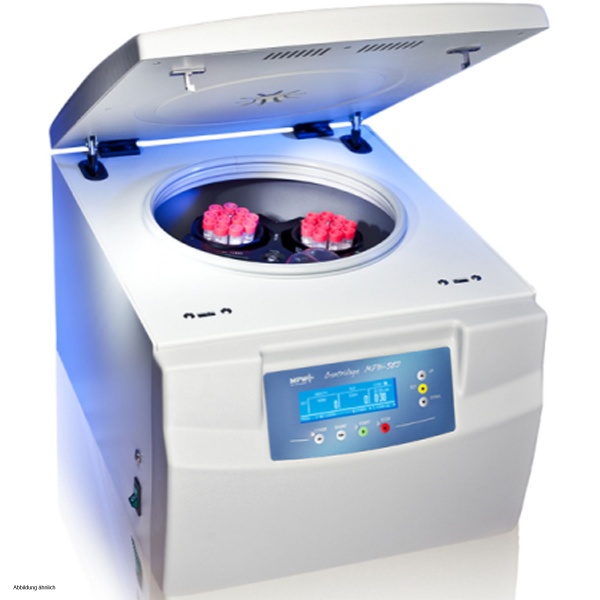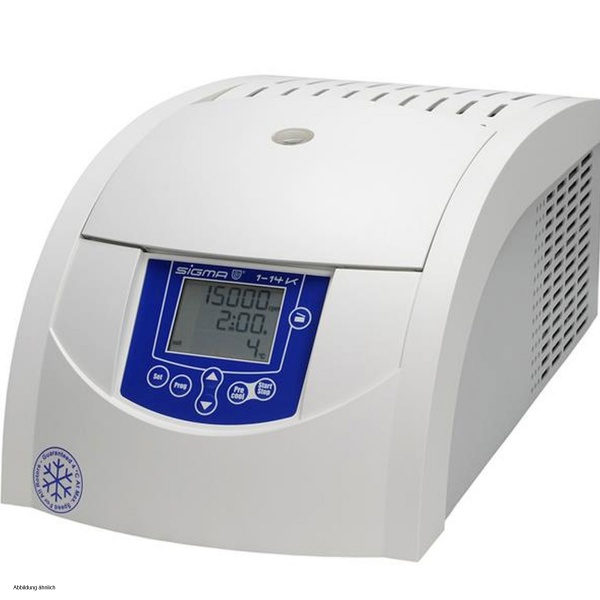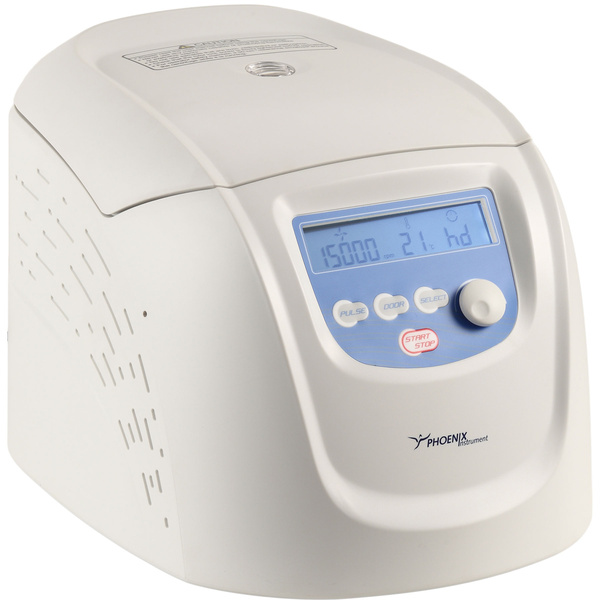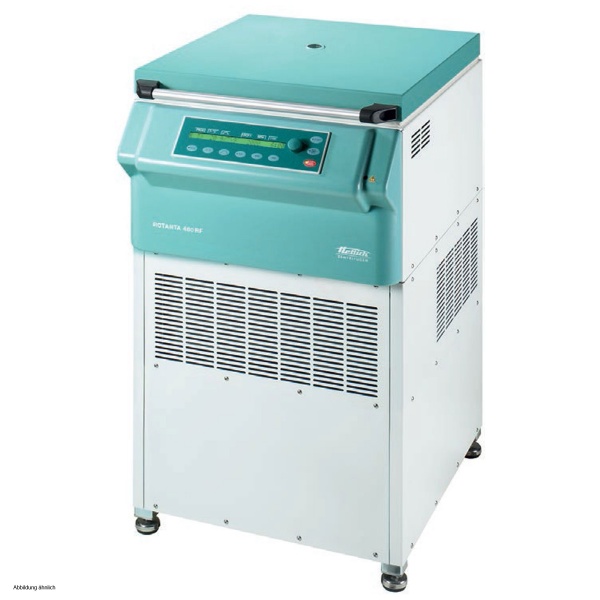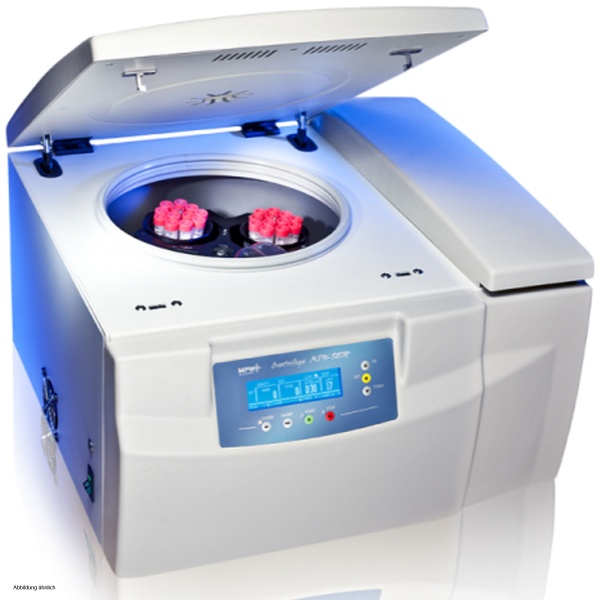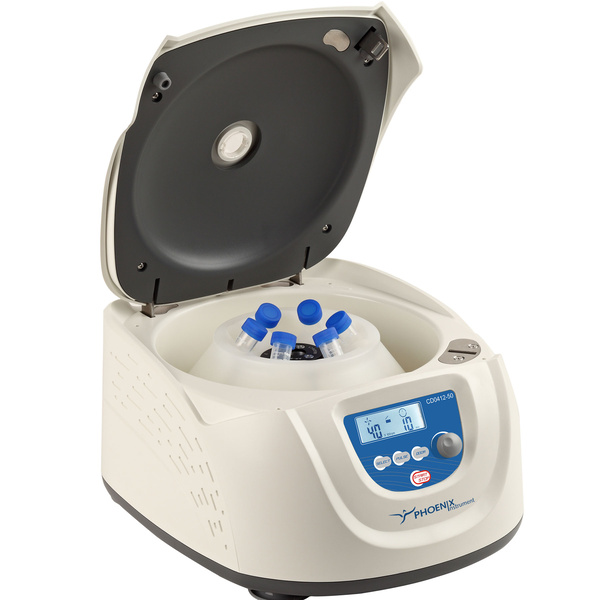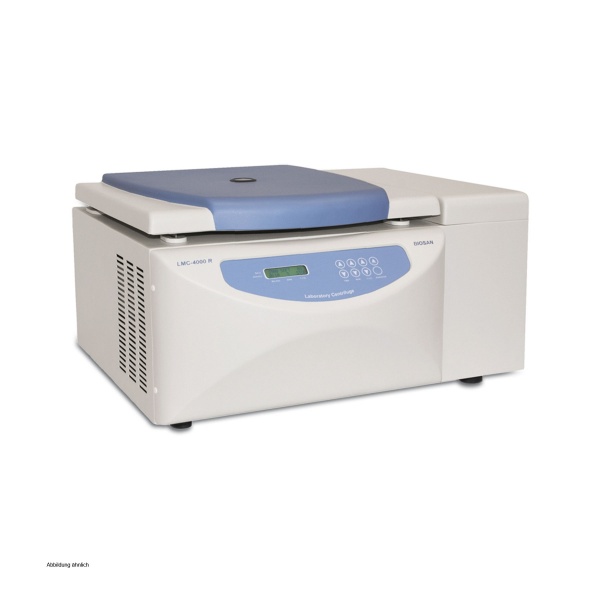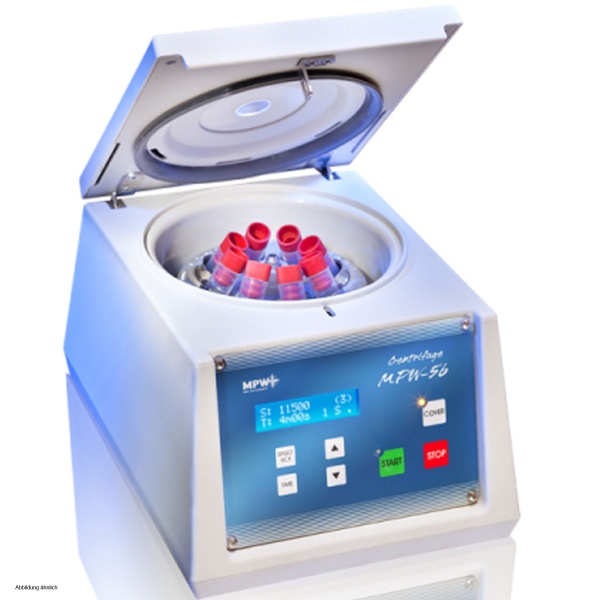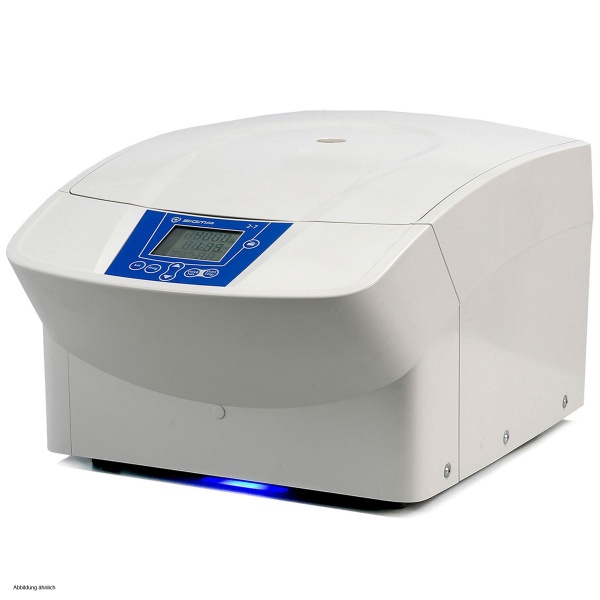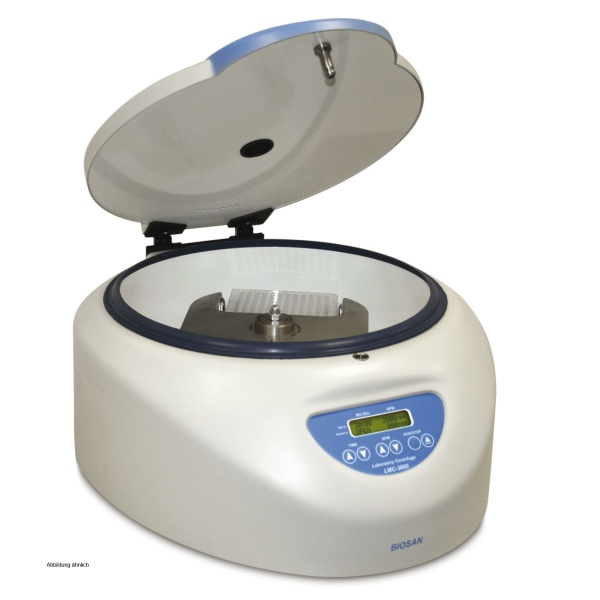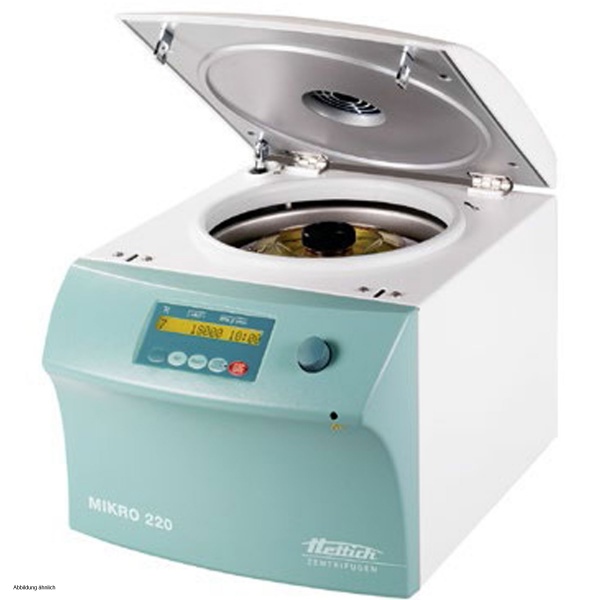Laboratory Centrifuges, Centrifuges with vortex function
Manufacturer for Centrifuges, Centrifuges with vortex function
Laboratory centrifuges for numerous applications
Centrifuges are used in laboratories, science, research, production and industry. Our first-class, robust devices are available in a wide variety of designs and sizes. The spectrum of models in our online catalogue ranges from small models such as micro and tabletop centrifuges for routine tasks in the laboratory to haematocrit centrifuges and microtitre plate models to large-volume devices with vortex function. These are suitable for processing large sample volumes. Which device is used in a laboratory depends largely on factors such as the sedimentation tasks performed, the rotor, the number of vessels, the vessel volume and the speed range (e.g. average speed).
The laboratory centrifuges offered by the brand manufacturers SIGMA, MPW, IKA, Witeg or BioSan are used in laboratories of all kinds, research facilities and production plants. They are used, for example, in medical diagnostics, pharmaceutical, chemical and petroleum industries, PCR/DNA research, blood banks, clinical laboratories, medical practices, molecular and microbiology, environmental laboratories, water and wastewater management.
Laboratory centrifuges and the corresponding rotors are available from us in various designs, for different applications, number of containers, vessels, volumes and speed ranges. A variety of rotors allow you to optimally equip the centrifuge to suit your needs. We will be happy to advise you on the selection of the centrifuge + rotor you need for your laboratory applications.
How laboratory centrifuges work
Laboratory centr ifuges are sedimentation centrifuges that perform a variety of functions and tasks in the laboratory. Depending on the area of application and sedimentation tasks, different laboratory centrifuges can be used. The mode of operation of a centrifuge is based on centrifugal force, which is created by a uniform circular motion of the substances to be centrifuged.
Laboratory centrifuges use this functional principle, the centrifugal force acting on mixtures of substances during the rotary motion, to separate the components. The prerequisite for this is a sufficiently large difference in the density of the substances and the liquid being used.
Particles or media with a higher density migrate outwards during sedimentation in a centrifuge due to the higher inertia. In the process, these displace the components with lower density, which thus reach the centre. In contrast to sedimentation, this process is considerably faster due to gravity or becomes possible in the first place - counteracting forces such as adhesion, thermal molecular movement or viscosity are overcome.
Laboratory centrifuge types in the ProfiLab24 range
Centrifuges are available in a wide variety of designs, sizes and models. The spectrum of laboratory centrifuges on offer ranges from small micro and tabletop centrifuges for routine tasks in the laboratory, haematocrit centrifuges, cyto centrifuges, microtitre plate centrifuges to large-volume centrifuges with vortex function, which are used for processing large sample quantities and sample vessels.
Which centrifuge is used in a laboratory depends largely on the sedimentation tasks performed , rotor, number of vessels, vessel volumes and speed ranges . We divide our laboratory centrifuges into different types:
- Heated centrifuges,
- small centrifuges,
- refrigerated centrifuges,
- microcentrifuges,
- floor-standing centrifuges,
- universal centrifuges and special centrifuges.
Microcentrifuge
Microcentrifuges are small, compact laboratory centrifuges for high speed and general laboratory use. These units are ideal for use in genetic research, medical, biochemical, microbiology, molecular biology or industrial laboratories. Rotors for reaction vessels up to max. 2 ml are usually part of the standard equipment. PCR tubes and strips can be centrifuged with special rotors.
Small centrifuge
Small centrifuges with cooling and heating are compact models that can be easily transported and take up little space on the laboratory bench. These instruments are designed for small to medium sample volumes and are suitable for use in biochemical, veterinary or industrial laboratories. They are the centrifuges of choice for medical laboratories and doctors' offices.
Universal centrifuge
Universal centrifuges are benchtop centrifuges for universal use in numerous laboratories. Different rotors, adapters and accessories make these devices flexible for the use of different vessels. Some models are available in cooled and heated versions.
Stand centrifuge
Floor-standing centrifuges are large-volume devices for processing large sample volumes in large sample vessels. They are suitable for use in blood banks and laboratories in hospitals and the pharmaceutical industry for high throughput screening.
Refrigerated centrifuge
Refrigerated centrifuges are models with a temperature range usually starting from -20 °C. These centrifuges with cooling are used e.g. in cell biology and enzymology.
Heated centrifuge
Heated centrifuges are devices with a temperature range up to 60 °C.
Special centrifuge
These models include, for example, devices for implantology, for column tests and cytological tests.
Order first-class centrifuge accessories at ProfiLab24
Our centrifuges from renowned manufacturers are characterised by their robust designs, reliability and flexibility to replace or add components. The large selection of rotors allows you to easily adapt your model to a wide range of laboratory applications and reaction vessels.
Depending on the model and manufacturer, you can order different components and laboratory centrifuge accessories such as various adapters, racks, containers, vessels and many other accessories for the centrifuges on offer.
We will support you in choosing the optimal centrifuge!
Do you have questions or requests regarding a specific model? No problem, our expert team of advisors is available around the clock to answer your questions. In a joint consultation, we take time for you to find exactly the right device for your needs. You can reach us at any time by telephone on +49 30 403 667 940 or by e-mail at [email protected].

